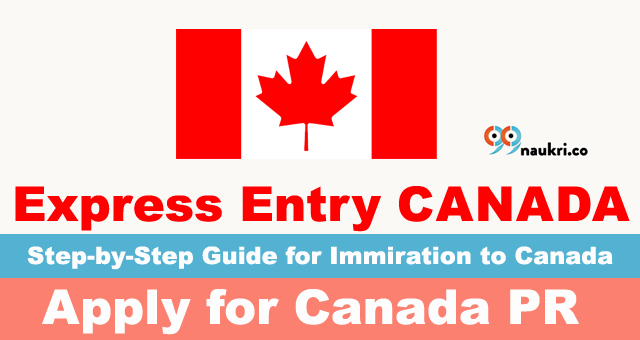Introduction: Scholarships in Canada for International Students
Ah, Canada – a country known not just for its picturesque landscapes, maple syrup, and ice hockey but also for its world-class education system. Dive into the heart of this academic excellence and discover the role scholarships play in making dreams come true for international students.
Background on Canadian Education
The Canadian education system, rich in its diversity and quality, is one of the primary reasons why Canada stands out on the global academic map. With over 95 universities spread across its ten provinces, Canada offers a plethora of courses ranging from humanities to pure sciences, ensuring every student finds their niche. Canadian universities are renowned for their research-oriented curriculum, with many institutions consistently ranking among the top 100 globally. Think of the University of Toronto, McGill University, and the University of British Columbia – names that resonate with prestige and innovation.
What’s even more attractive is the multicultural backdrop these institutions offer. Imagine walking through a campus where multiple languages echo, various cuisines waft through the air, and students from all over the world come together in a harmonious blend of cultures. That’s Canadian education for you – a melting pot of experiences and knowledge.
Importance of Scholarships
For many international students, the dream of studying in Canada might seem distant due to financial constraints. This is where scholarships step in, acting as a beacon of hope. Scholarships, whether partial or full, significantly reduce the financial burden, allowing students to focus more on learning and less on earning.
But scholarships are not just about the money. Being awarded a scholarship is a recognition of one’s hard work, talent, and potential. It’s a nod to your achievements, both academic and extracurricular, and a testament to your dedication and determination.
Moreover, scholarships also provide a platform for networking. Many come with opportunities for internships, seminars, or workshops with industry leaders, paving the way for future employment or research collaborations.
The Landscape of Scholarships in Canada
Stepping into the vast world of Canadian scholarships can initially feel overwhelming. With so many opportunities at your fingertips, it’s essential to understand the landscape to navigate it effectively. Let’s break it down into two primary categories: Public Scholarships and Private Scholarships.
Public Scholarships
When we talk about public scholarships, we’re referring to those funded and administered by Canadian governmental bodies, be it federal, provincial, or municipal. These scholarships are often more extensive and are designed to attract top-tier talent from across the globe to Canada’s shores.
For instance, the Vanier Canada Graduate Scholarships and the Canada Graduate Scholarships-Master’s Program are classic examples of public scholarships. They aim to bring doctoral and master’s students, respectively, to Canadian institutions, emphasizing leadership skills and high academic achievement.
Another benefit of public scholarships is the sheer number of them. Almost every field of study, from the arts to the sciences, has a scholarship or grant funded by the government. This broad spectrum ensures that irrespective of your discipline, there’s likely a public scholarship waiting for you.
Private Scholarships
Venture beyond governmental offerings, and you’ll find a myriad of private scholarships. These are sponsored by non-governmental entities: corporations, non-profits, foundations, and even individuals. They might be smaller in scope compared to public ones, but they’re just as valuable.
For example, companies might offer scholarships to students in specific fields, hoping to attract potential future employees. The TD Scholarships for Community Leadership is a notable one, offered by TD Bank to students who’ve shown exceptional community leadership.
Similarly, non-profits might provide scholarships based on particular causes or communities. An excellent example would be the Pierre Elliott Trudeau Foundation Doctoral Scholarships, awarded to individuals making impactful contributions in the social sciences and humanities.
One defining feature of private scholarships is their criteria. They often focus on niche areas, targeting specific groups or fields of study. This specialization means that while there might be fewer applicants than broader public scholarships, understanding and meeting the unique criteria becomes crucial.
Eligibility Criteria
Diving into the scholarship pool, you’ll quickly realize that merely wanting a scholarship isn’t enough. You’ve got to prove you’re worth it! But how exactly do you do that? Well, each scholarship has its unique set of criteria, but most tend to orbit around three primary pillars: Academic Excellence, Extracurricular Achievements, and Financial Need.
Academic Excellence
First and foremost, your grades matter. Scholarship providers, especially in a country with a robust educational reputation like Canada, seek students who’ve consistently showcased academic prowess. Why? Because these scholarships are investments. By supporting your education, these institutions are betting on your potential to bring about positive change, innovate, or contribute significantly to your field of study in the future.
For academic-based scholarships, you’ll typically need to provide transcripts, standardized test scores, or other academic accolades. Remember, while a good academic record can open doors, an inconsistent one doesn’t necessarily shut them. Some scholarships value growth and may prioritize students who’ve shown significant academic improvement over the years.
Extracurricular Achievements
But hey, it’s not all about hitting the books. Your activities outside the classroom speak volumes about who you are. Are you a star athlete, a budding artist, a debater, or perhaps a community service enthusiast? These activities illuminate your passions, dedication, and ability to juggle multiple commitments.
Extracurriculars often tell scholarship committees about your soft skills – teamwork, leadership, perseverance, and time management. They provide a holistic view of you as an individual, not just as a student. So, when applying, highlight your roles, responsibilities, and any accolades you’ve received. Make sure you paint a vivid picture of your journey in these activities.
Financial Need
Let’s face it; education can be expensive. While many aspire to study at renowned Canadian institutions, not everyone possesses the means. That’s where need-based scholarships come in. These scholarships aim to bridge the financial gap, ensuring that monetary constraints don’t deter deserving students from chasing their academic dreams.
For such scholarships, you’ll likely have to provide proof of your financial situation. This could be in the form of family income statements, bank records, or affidavits. The goal is to give the committee a clear picture of your financial standing, ensuring the scholarship goes to someone who genuinely needs it.
Popular Scholarships for International Students
Canada, with its top-tier universities and diverse cultural fabric, attracts students from every corner of the globe. If you’re an international student with aspirations of studying in Canada, you’re in luck. There’s a plethora of scholarships tailored just for you! While there are numerous categories, let’s delve into two of the most prominent: University-specific Scholarships and Government-based Scholarships.
University-specific Scholarships
Many Canadian universities roll out the red carpet for international students by offering scholarships exclusive to them. These scholarships, often generously funded, aim to bring a rich mix of global talent to their campuses. Here are some noteworthy ones:
- University of Toronto – Lester B. Pearson International Scholarship: This scholarship recognizes international students who demonstrate exceptional academic achievement and creativity. Recipients not only receive full tuition coverage but also receive funds for books, living expenses, and more.
- McGill University – McGill International Student Scholarships: Tailored for students from various parts of the world, these scholarships reward academic excellence. The amount and criteria can vary based on your home country and the program you choose.
- University of British Columbia – International Major Entrance Scholarship (IMES): Awarded to outstanding international students entering undergraduate programs at UBC, this scholarship can be renewed for up to three additional years.
- University of Waterloo – International Master’s and Doctoral Student Awards: These are aimed at graduate students and vary based on the faculty and program. They’re designed to assist international students in their academic pursuits at the master’s and doctoral levels.
Government-based Scholarships
The Canadian government, understanding the value international students bring, has set up multiple scholarships to facilitate their education in Canada.
- Vanier Canada Graduate Scholarships: Targeted at doctoral students, this scholarship is about recognizing students who’ve showcased leadership skills and a high standard of scholarly achievement. It’s available to both Canadian and international students.
- Canada Graduate Scholarships – Master’s Program (CGS M): Designed for students pursuing research-based master’s programs, this scholarship emphasizes students’ potential as researchers.
- Banting Postdoctoral Fellowships: This program provides funding to national and international postdoctoral applicants who’ll contribute positively to Canada’s economic, social, and research-based growth.
- Canada-ASEAN Scholarships and Educational Exchanges for Development (SEED): Specifically for students from Southeast Asian nations, this scholarship is about reducing poverty in these countries and achieving sustainable development.
Application Process
Embarking on the journey to secure a scholarship in Canada? It’s not just about your eligibility; the application process itself plays a pivotal role. A smooth, well-thought-out application can set you apart from the rest. So, let’s demystify this process, breaking it down into three digestible steps: Research and Selection, Necessary Documentation, and Application Submission.
Research and Selection
Before you even think about applying, you’ve got to know where to apply. This step is all about:
- Understanding Your Needs and Strengths: Are you looking for an undergraduate or postgraduate scholarship? Are you leaning more towards need-based or merit-based scholarships? Recognize where your strengths lie and align them with potential scholarships.
- Exploring University Websites: Every major Canadian university has a dedicated section for scholarships, especially for international students. Scour these pages, make notes, and even consider reaching out to their financial aid office for clarifications.
- Government and Private Scholarship Portals: Platforms like ScholarshipsCanada or the official Canadian government website for international scholarships can be treasure troves of information.
- Setting Priorities: You might be eligible for multiple scholarships, but it’s essential to prioritize. Which ones align most with your profile? Which offer the best benefits? Make a shortlist.
Necessary Documentation
A successful scholarship application is backed by robust documentation. This is where you prove your claims and showcase your worth. Here’s what you typically need:
- Academic Transcripts and Diplomas: These prove your academic prowess and are a non-negotiable part of almost every scholarship application.
- Letters of Recommendation: Typically from academic or professional references, these letters vouch for your skills, character, and potential.
- Statement of Purpose or Personal Essay: Here’s your chance to shine. Narrate your journey, your aspirations, and why you deserve the scholarship. Be genuine and compelling.
- Proof of Financial Need: For need-based scholarships, you’ll need documents that attest to your financial situation, like income statements or affidavits.
- CV or Resume: Especially for postgraduate scholarships or those emphasizing leadership/extracurricular achievements, a CV can be crucial.
- Proof of Identity and Nationality: Typically, this means your passport, but some scholarships might also ask for birth certificates or national ID cards.
Application Submission
You’ve done your research, gathered your documents, and now it’s showtime!
- Filling Out the Form: This might seem straightforward, but take your time. Ensure every field is filled out correctly and that you’ve answered any supplementary questions.
- Uploading Documents: Use clearly labeled, high-resolution scans. Follow the specified format (like PDF or JPEG) and size limits.
- Double-Check Everything: A minor oversight can cost you the scholarship. Re-read every section, cross-check with the scholarship’s requirements, and ensure you’ve not missed anything.
- Submit Before the Deadline: This can’t be stressed enough. Mark the deadline on your calendar, set reminders, and aim to submit well before it.
- Track Your Application: Some scholarships allow you to track your application status online. If not, it’s okay to follow up via email (politely) if you’ve not heard back after a considerable time.
Tips for Securing a Scholarship
Ah, scholarships! The golden ticket to easing the financial burden of education. But, as with anything golden, they’re not easy to secure. With a deluge of talented applicants from across the globe, how do you ensure your application stands out in the Canadian scholarship arena? Let’s delve into some practical tips, focusing on three crucial aspects: Maintaining a Strong Academic Record, Gathering Recommendations, and Writing an Impressive Essay.
Maintaining a Strong Academic Record
Your academic record often serves as the first impression for scholarship committees. Here’s how to ensure it gleams:
- Consistent Performance: While a sudden spike in grades can indicate improvement, consistency in academic excellence is often more valued. It showcases dedication and an unwavering commitment to academics.
- Engage in Academic Clubs & Activities: Joining debate teams, science clubs, or math leagues not only supplements your academic prowess but also illustrates a genuine interest in your field of study.
- Seek Help When Needed: If you’re struggling in a subject, don’t shy away from seeking help. Tutors, study groups, or even online resources can aid in bolstering weak areas.
Gathering Recommendations
Recommendation letters can be the wind beneath your scholarship application’s wings. Here’s how to ensure they lift you high:
- Choose Wisely: Opt for teachers, professors, or mentors who know you well, not just those with impressive titles. A heartfelt recommendation from a regular teacher often outweighs a generic one from a renowned professor.
- Provide a Brief: When asking for a recommendation, offer a brief highlighting your achievements, goals, and the scholarship’s requirements. It ensures the recommender aligns the letter with your aspirations.
- Ask Early: Don’t wait till the eleventh hour. Give your recommenders ample time to craft a compelling letter.
Writing an Impressive Essay
Your essay is where your voice, journey, and aspirations come alive. Make it count:
- Be Authentic: Resist the urge to write what you think the committee wants to hear. Narrate your genuine story, your real challenges, and dreams.
- Start Strong: An engaging introduction can hook the reader instantly. Whether it’s a quote, a question, or an anecdote, make sure it encapsulates the essence of your essay.
- Structure & Flow: Ensure your essay has a clear beginning, middle, and end. Use transitions to ensure ideas flow seamlessly.
- Proofread, Then Proofread Again: Grammatical errors or typos can be detrimental. After you’ve written your essay, take a break, come back with fresh eyes, and proofread. Better yet, have someone else review it too.
- Address the Prompt: It sounds obvious, but many drift away from the essay prompt. Ensure every paragraph aligns with the topic and that you’ve adequately addressed all aspects.
Living in Canada: What to Expect
Dreaming of a life amidst the vast landscapes, serene lakes, and bustling multicultural cities of Canada? Moving to this Great White North nation is an exciting journey, filled with opportunities and experiences. But before you pack your bags, let’s delve into the heart of Canadian living: the Cultural Experience and Financial Living Costs.
Cultural Experience
Canada, known for its sprawling geography, is also a melting pot of cultures, languages, and traditions. Here’s a peek into the cultural canvas of Canada:
- Diverse Communities: With one-fifth of its population born outside of its borders, Canada is home to a myriad of cultures. Whether it’s the Punjabi parades in Vancouver, the Caribbean Carnival in Toronto, or the Francophone celebrations in Quebec, you’re in for a multicultural treat.
- Bilingual Nation: English and French are the official languages. While most provinces predominantly speak English, in Quebec, you’ll find a strong French influence. Picking up some French can be both fun and beneficial!
- Celebrations and Festivals: From the icy sculptures of Winterlude to the summer vibes of Vancouver Folk Music Festival, there’s always a reason to celebrate. The diverse communities also mean that global festivals, from Diwali to Eid, are celebrated with equal fervor.
- Politeness is Paramount: You might’ve heard the stereotype – Canadians are polite. And well, it’s somewhat true! A random act of kindness, a quick “sorry” when someone accidentally bumps into you, or a friendly nod are commonplace.
Financial Living Costs
Living in Canada offers a high quality of life, but it’s essential to be aware of the costs associated with it:
- Accommodation: Prices vary considerably based on location. Metropolitan cities like Toronto and Vancouver are notably more expensive than smaller towns or rural areas. Researching and choosing a location that fits your budget can make a significant difference.
- Transport: Public transportation is reliable in major cities, with options ranging from buses, trams, to subways. However, in suburban or rural areas, having a car may be more convenient. Don’t forget to account for insurance, gas, and maintenance.
- Groceries and Dining: Food costs can differ based on where you shop. Local markets often offer fresh produce at competitive prices. While Canada offers a plethora of dining options reflecting its diverse culture, eating out often can strain your budget.
- Healthcare: One of Canada’s proud features is its universal healthcare for citizens and permanent residents. However, newcomers, especially students or temporary workers, should consider health insurance until they gain access to the public health system.
- Education Costs: If you’re eyeing Canada for education, remember that while its institutions are world-class, tuition fees, especially for international students, can be substantial. Exploring scholarships or part-time work options can help offset these costs.
Conclusion
Embarking on a journey to Canada, be it for education, work, or a fresh start, promises a blend of enriching cultural experiences and top-notch amenities. While the nation is synonymous with its vast landscapes and natural wonders, its true essence lies in its people, traditions, and the warm, welcoming environment it offers to newcomers. Yet, as with any major life decision, it’s crucial to be well-informed, financially prepared, and culturally open. Canada is not just a country; it’s a world in itself, ready for you to explore, understand, and call home.
FAQs
How easy is it to find a job in Canada as an international newcomer?
While Canada is known for its booming job market, ease of finding a job often depends on your field of expertise, qualifications, and the region in which you’re looking. Cities like Toronto and Vancouver have vast job markets, but they’re also competitive.
Is English the only language I need to know to live in Canada?
English is predominantly spoken across Canada. However, Quebec is a primarily French-speaking province. Knowing some basic French phrases can be beneficial if you’re moving to or visiting this region.
How do I adapt to the cold Canadian winters?
Layering is the key! Invest in good quality winter wear, including insulated jackets, boots, gloves, and hats. Also, many homes and public spaces are well-heated, ensuring comfort indoors.
Are there any community groups or organizations to help newcomers settle in Canada?
Absolutely! Canada has numerous organizations dedicated to helping newcomers adjust. These offer services ranging from job search assistance to language classes and cultural integration programs.
How does the Canadian healthcare system work for newcomers?
Canada boasts a comprehensive public healthcare system for its citizens and permanent residents. Newcomers, especially those on temporary visas, should consider purchasing private health insurance until they are eligible for public health coverage.














